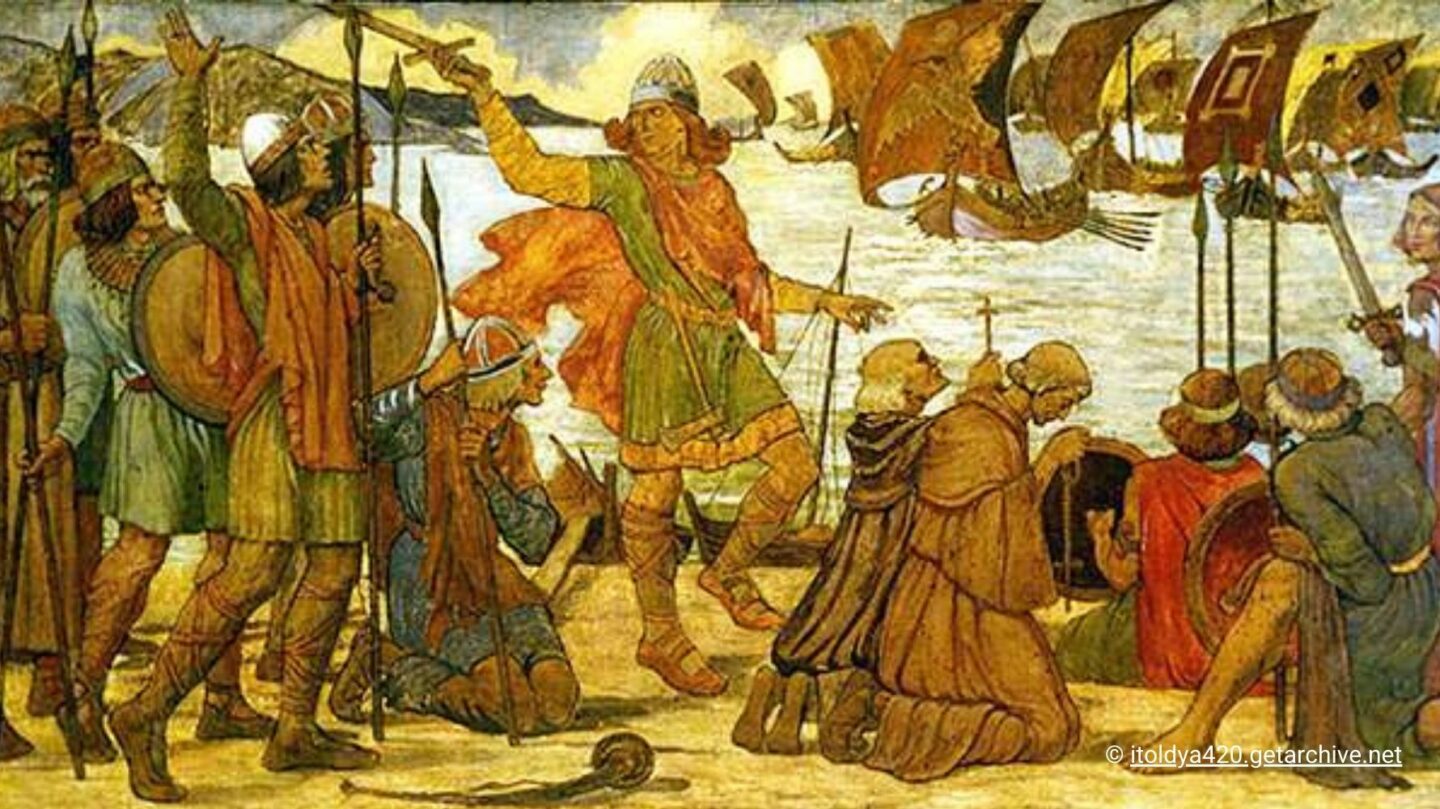The Beginning of the Viking Age
The Viking Age, spanning from the late 8th century to the early 11th century, was a transformative period in European history. Originating from Scandinavia, the Vikings were seafaring Norse people who ventured across Europe and beyond, leaving an indelible mark on the cultures and landscapes they encountered.
While they are often remembered for their raids and conquests, the Vikings were also skilled traders, explorers, and settlers. Their journeys extended from the British Isles to the Mediterranean, and even across the Atlantic to North America. This period of expansion and exploration shaped the political, economic, and cultural development of many regions.
Masters of the Sea: Viking Ships and Exploration
The Vikings’ success as explorers and warriors was largely due to their advanced shipbuilding techniques. Viking longships were fast, lightweight, and highly maneuverable, enabling them to navigate both open seas and shallow rivers. This allowed the Vikings to launch surprise raids, establish trade routes, and explore distant lands.
Their maritime expertise took them far beyond their Scandinavian homeland. The Vikings reached as far west as North America, with Leif Erikson establishing a settlement at Vinland (modern-day Newfoundland) around 1000 CE, nearly 500 years before Columbus. In the east, they navigated rivers such as the Dnieper and Volga, forging trade connections with the Byzantine Empire and the Islamic world.
Raiders and Warriors
Viking raids were a defining feature of the era, beginning with the infamous attack on the monastery at Lindisfarne in 793 CE. These raids struck fear across Europe as Viking warriors targeted coastal towns, monasteries, and trade centers. Their speed and brutality allowed them to seize wealth and resources, disrupting local economies and societies.
However, the Vikings were not merely destructive raiders. Many settled in the regions they attacked, assimilating with local populations and establishing long-lasting kingdoms. For instance, the Vikings who settled in northern France became known as the Normans, a group that would later play a crucial role in European history, including the Norman Conquest of England in 1066.
Traders and Cultural Exchange
Beyond their reputation as raiders, the Vikings were also prolific traders who contributed to the economic and cultural integration of Europe and beyond. Their trade networks stretched from Scandinavia to the Middle East, exchanging goods such as furs, amber, weapons, and slaves for silver, silk, and spices.
Through their trade routes, the Vikings facilitated cultural exchange, introducing new ideas, technologies, and goods to Europe. They brought Eastern influences to the West and played a significant role in connecting the disparate regions of medieval Europe.
The Viking Legacy in Europe
The Vikings significantly influenced the political and cultural landscape of Europe. In Britain, Viking invasions led to the establishment of the Danelaw, a region under Norse control. Their settlement patterns contributed to the development of towns and trade centers, many of which became prominent cities.
In Eastern Europe, Norse explorers known as the Varangians founded the Kievan Rus’, a federation that would later evolve into modern Russia and Ukraine. The Varangians also served as elite guards for the Byzantine emperors, demonstrating the Vikings’ integration into global politics.
The End of the Viking Age
The Viking Age gradually came to an end in the 11th century as Scandinavian kingdoms embraced Christianity and centralized governance. This shift reduced the need for raiding and promoted more peaceful interactions with neighboring regions.
A Legacy of Exploration and Innovation
The Vikings were far more than fearsome warriors; they were explorers, traders, and settlers who left a profound legacy on Europe and beyond. Their adventurous spirit and maritime expertise shaped the political and cultural development of the regions they touched, bridging distant parts of the medieval world. The Viking Age remains a testament to human ingenuity, resilience, and the enduring quest for discovery.
